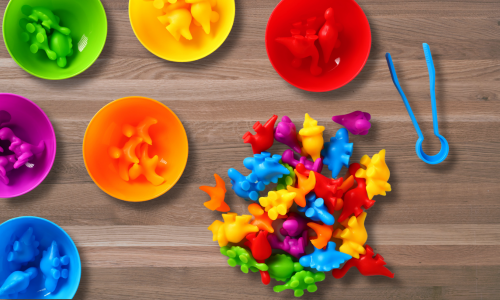10 Must-Have Resources for Every Special Needs Homeschool
When it comes to homeschooling children with special needs, having the right resources can make a world of difference. Finding tools that adapt to unique learning styles, sensory needs, and specific challenges can help make learning more engaging and productive. Here’s a list of 10 essential resources that every special needs homeschool should consider incorporating.
2 min read


1. Visual Timers
Visual timers help children with time management, especially those who struggle with transitions. By giving a clear visual countdown, these timers reduce anxiety and make it easier for kids to anticipate changes in routine.
I recommend: KADAMS visual timer for kids with audio pre-alarm
2. Flexible Seating Options
Different learners need different seating setups. Bean bag chairs, wobble stools, and floor cushions offer flexible seating that supports sensory needs, allowing kids to wiggle, rock, and find the best learning posture.
I recommend: Trideer wobble cushion
3. Noise-Canceling Headphones
For children sensitive to sound, noise-canceling headphones are essential. They can help reduce overwhelming background noise, making it easier for kids to focus during lessons.
I recommend: ProCase noise cancelling headphones
4. Hands-On Learning Kits
Hands-on kits make subjects like math, science, and language arts more engaging by allowing children to learn through touch and interaction.
I recommend: 10-in-1 STEM building/construction toy for 4-8+ y/o
5. Educational Apps and Assistive Technology
Technology can be a game-changer in special needs education. Apps like Proloquo2Go for communication or Learning Ally for audiobooks provide support in areas where traditional learning methods may fall short.
I recommend: Khan Academy Kids, ABCmouse, and Epic! are all fantastic resources for visual and interactive learning experiences.
6. Sensory Bins and Fidget Tools
Sensory bins filled with items like rice, beans, or sand, along with fidget tools, can help children self-regulate. They offer tactile stimulation and can be tailored to fit different sensory needs.
I recommend: Sensory bins
I recommend: Fidget toys
7. Adapted Workbooks and Visual Supports
Adapted workbooks include visuals, larger text, and fewer items per page, making them easier to process. Visual aids, such as social stories and picture cards, also help reinforce learning concepts.
I recommend: TouchMath workbooks are highly recommended for visual math learners.
8. Weighted Blankets or Lap Pads
Weighted blankets and lap pads provide calming, deep pressure that can help kids who struggle with focus or anxiety. They’re great for use during reading time or other activities where sitting still is challenging.
I recommend: Huggaroo Weighted Lap Pad, designed for kids, offers comforting weight to help with focus and relaxation.
9. Organizational Tools
Binders, visual schedules, and task checklists provide structure to each day. They help children understand what’s expected and provide a sense of achievement as they mark off tasks.
I recommend: Case-it The King Sized Zip Tab Zipper Binder - 4 Inch D-Rings
I recommend: Godery Large Visual Schedule for Kids
10. Parental Support Networks and Online Communities
You’re not alone on this journey! Online communities for special needs parents can be a source of encouragement, advice, and practical tips. Groups on Facebook, dedicated forums, and even local meet-ups can be valuable.
I recommend: Look for “special needs homeschool” groups on Facebook or check out the Mighty Moms community for extra support.
